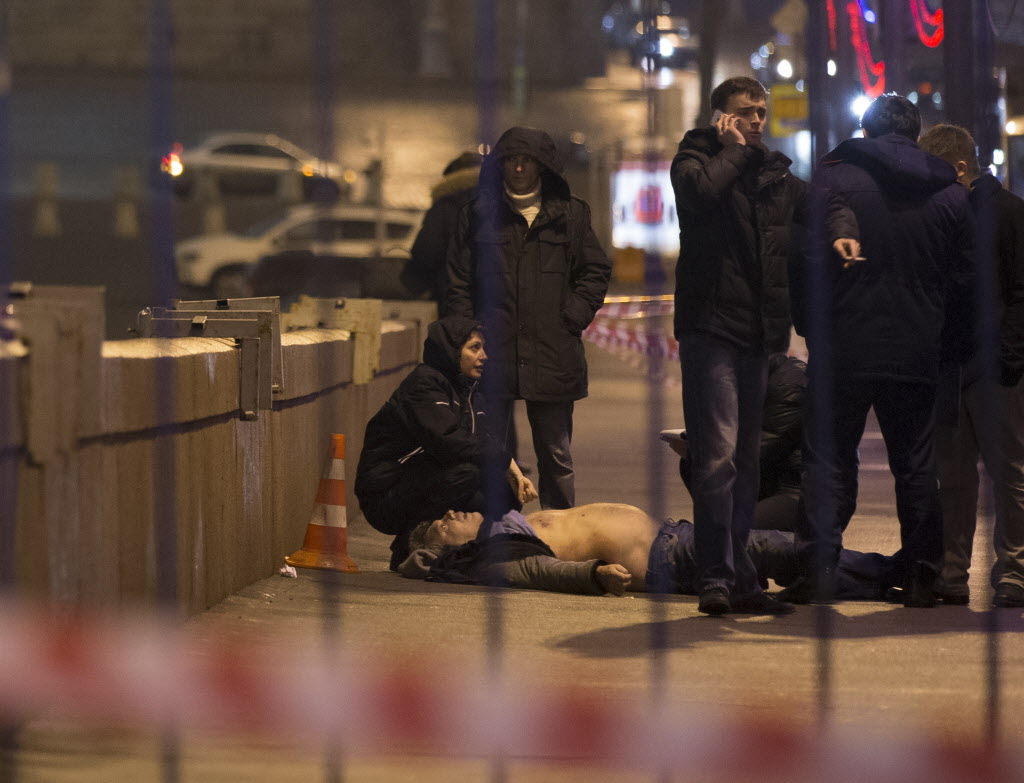Response by U.S. citizens and news outlets to the fascistic noises of Trump and co. have thus far been reassuring, even if the Congress and Senate have been as disappointingly partisan and enabling as expected. It’s important there’s early pushback against the Administration because authoritarianism is a creeping thing, with those wishing to seize absolute control committing outrages to see what the response will be and how far the line can be moved.
A good example during the election was when Trump said midway through his campaign that “I could stand in the middle of Fifth Avenue and shoot somebody and I wouldn’t lose voters.” Once the adoring crowd didn’t disperse after that line or subsequent his mockery of American POWs or countless other provocations, he knew he could go further, and so he did.
In a smart Washington Post op-ed, Michael McFaul, former U.S. Ambassador to Russia, writes of the parallels between Putin’s initial anti-democratic actions and Trump’s. An excerpt:
Today, of course, we see clearly how Putin’s first modest antidemocratic steps ultimately led to autocracy. Whenever Putin faced challenges to his power or constraints on his personal rule, he chose to increase repression, not to moderate. He arrested business leaders who dared to try funding opposition parties, including, most dramatically, the richest man in Russia at the time, Mikhail Khodorkovsky. He used the powers of the state to limit real competition in national elections. He ended the direct election of governors.
And when tens of thousands of Russians took to the streets to protests against his regime in December 2011, Putin labeled them traitors and puppets of the United States, and then used a variety of means — disinformation, blackmail, and arrests based on bogus charges — to weaken and eliminate his opponents. One of the leaders of these protests, Boris Nemtsov, was later assassinated. Some remain in jail or under house arrest, while many others now live in exile. Just last week, liberal opposition leader Vladimir Kara-Murza was apparently poisoned for the second time in two years.
To counter the urban, educated, wealthy “creative class” protesting against him, Putin also mobilized his electoral base: the rural, poor, uneducated supporters who were the primary losers of Russia’s (partial) integration into the global market economy. Putin and his administration took deliberate actions to polarize Russian society, pitting citizens from big cities such as Moscow and St. Petersburg against “real” Russians in the rural heartland.
In retrospect, Russians who lament the consolidation of Putin’s autocracy all say they reacted too slowly at the beginning. They didn’t believe things could get so bad. They didn’t believe Putin would ever go as far as he did. Back in 2000, Putin had few allies within the state, and lukewarm support in society. He won his first election because of government support and weak opponents, not because of wild enthusiasm among voters for him or his ideas. Back then, important actors in Russia’s business class remained autonomous from the state, regional leaders also acted a check on Moscow’s power, independent media still existed and parliament still enjoyed some real power. Had these forces pushed back immediately against creeping authoritarianism, Russia’s political trajectory might have been different.
Sounds familiar?•

